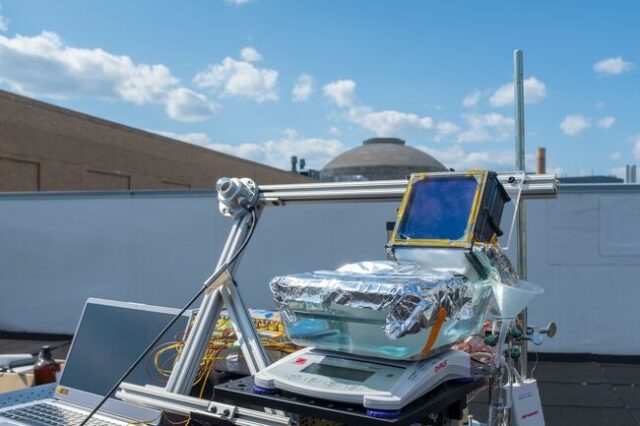
A groundbreaking solar-powered desalination system heralds a new era in sustainable water production, offering a promising solution to the pressing global challenge of water scarcity. Developed by a collaborative team of researchers from King’s College London, MIT, and the Helmholtz Institute for Renewable Energy Systems, this innovative technology provides a reliable source of fresh drinking water without relying on direct sunlight. Utilizing the principles of electrodialysis, the system efficiently separates salt from water, producing clean drinking water irrespective of variable solar conditions. Through extensive field tests in rural communities, the researchers demonstrated not only the efficacy of their method but also its cost-effectiveness, offering a viable alternative to traditional desalination techniques.

The implications of this advancement extend far beyond providing clean water to rural areas. With over 1.6 billion people worldwide facing water scarcity, and a significant portion of groundwater being saline and unusable, the need for sustainable desalination solutions is paramount. By eliminating the dependency on grid infrastructure and reducing reliance on costly batteries, this solar-powered desalinator offers a practical and eco-friendly approach to addressing water scarcity, particularly in regions like India where the problem is acute. Moreover, its potential applications in agriculture and environmental conservation underscore its significance in mitigating the impacts of climate change and advancing towards a more sustainable future. As efforts to scale up this technology progress, it holds the promise of transforming water accessibility and resilience, offering hope for communities worldwide facing the challenges of water scarcity and contamination.














